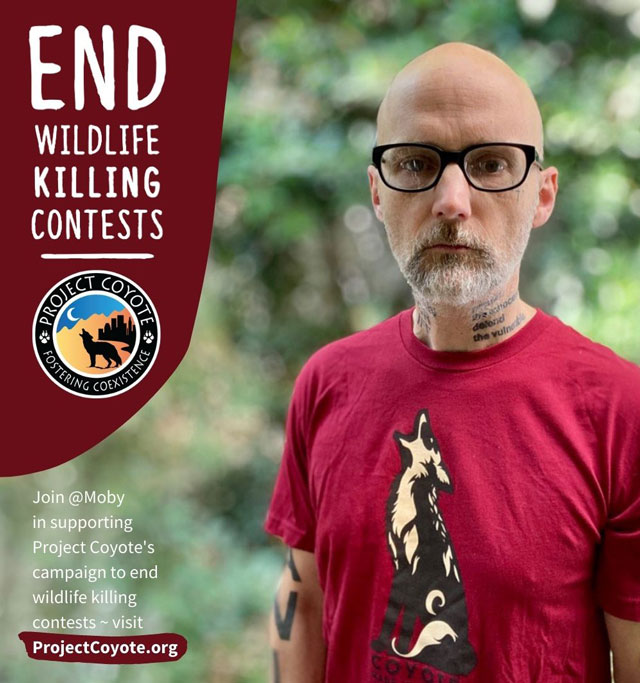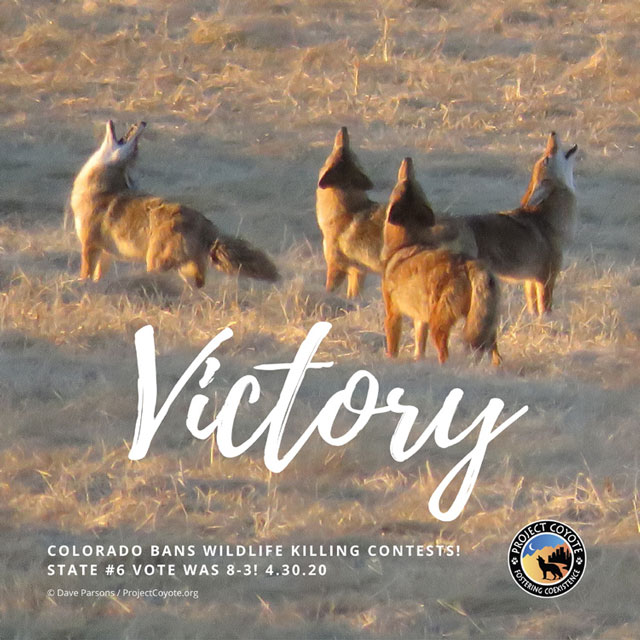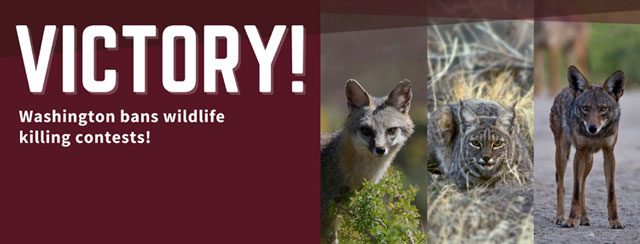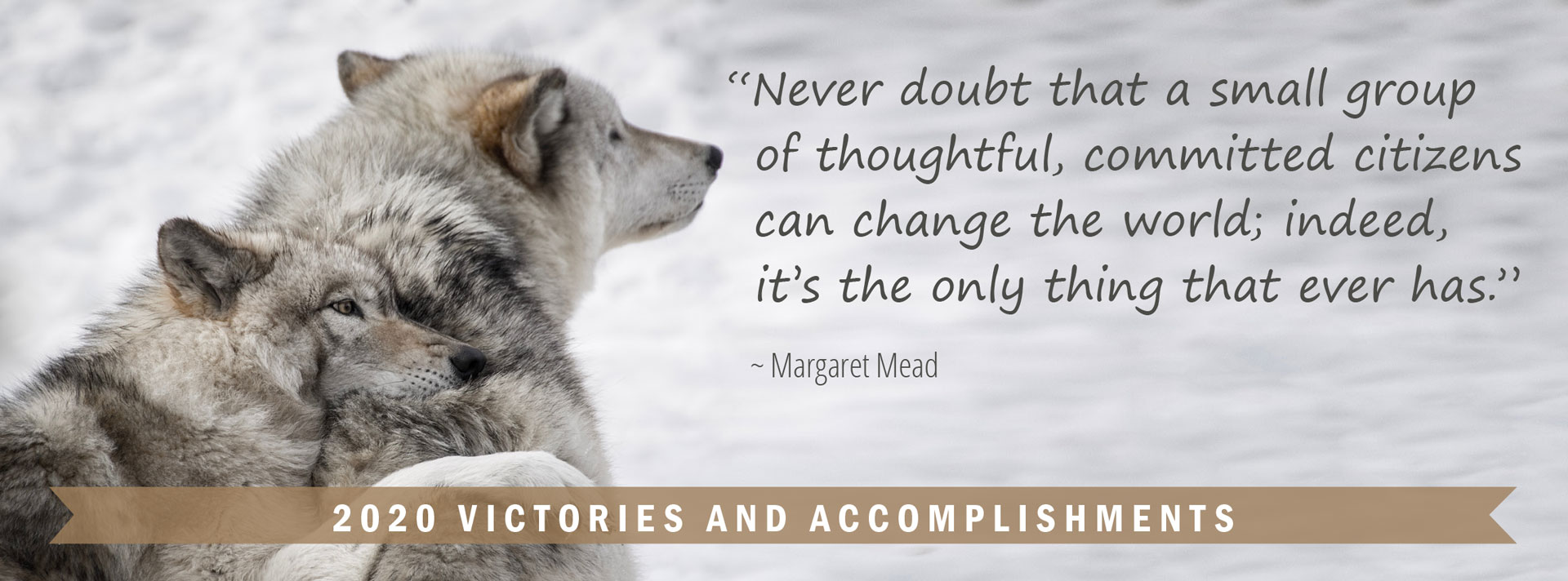
Challenging. Exhausting. Disorienting. A year of upheaval and turmoil. 2020 has been all of these and more. But in this time of uncertainty, a fundamental truth gives us hope: together we can accomplish extraordinary feats. With intention, motivation, inspiration, and passion, Project Coyote is more committed than ever to our mission of creating a more compassionate world for all of its inhabitants.
Together we have made significant steps to end wildlife killing contests nationwide. Our Project Coyote activists and donors, together with wildlife agencies and professionals across the country, have expressed serious concerns about these events—not only because they reflect badly on responsible sportsmen and sportswomen, but also because they contravene modern, science-based wildlife conservation principles and are destructive to healthy ecosystems. In December 2019, Massachusetts became the fifth state to outlaw wildlife killing contests; Arizona and New Mexico enacted bans on the contests earlier that year. In January 2020, the St. Paul, MN City Council passed a resolution condemning “the indiscriminate killing of wildlife in the form of wildlife killing contests.” In May 2020, Colorado became the sixth state to ban killing when its Parks and Wildlife Commission enacted a regulation prohibiting contests that target furbearers and small game species; and a few months later, in September 2020, Washington became the seventh state to prohibit the contests when the state’s Fish and Wildlife Commission voted to ban the killing of unprotected species including coyotes, bobcats, crows, foxes, and raccoons as part of a contest. And we were thrilled when legendary musician Moby added his support by joining our FLOAT campaign!
We are now collaborating with National Geographic filmmakers on a new documentary focused on killing contests with the goal of continuing to increase awareness of this issue. Our team and coalition partners are currently working with additional state legislators and commissioners and with federal lawmakers to pass similar laws across the country ~ you will learn more about these campaigns in the weeks and months ahead.
Project Coyote has also helped achieve two more significant victories for wildlife. First, California passed AB 273—becoming the first state in the nation to comprehensively ban commercial and recreational fur trapping. Second, Project Coyote’s supporters and activists, together with our coalition partners spoke up in support of AB 1788—the California Ecosystems Protection Act; Governor Newsom responded by signing this bill into law in September, thereby placing a moratorium on the use of deadly second-generation anticoagulant rodenticides that slowly and cruelly kill rodents as well as non-target wild and domestic animals who eat the poisoned remains.
In 2020, we expanded our Pack with the addition of staff and state representatives and increased our social media outreach ten-fold.
Together we will create a kinder world for ourselves and our fellow creatures, and for all those who follow. Thank you for joining us on this journey.
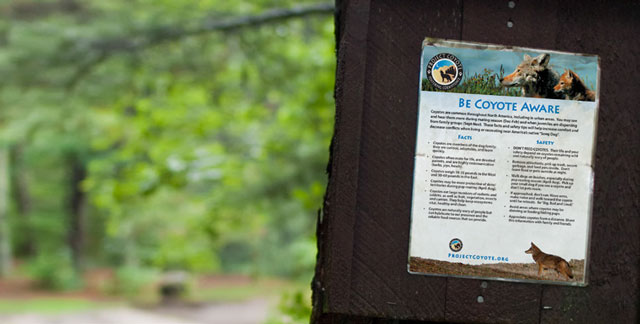
COYOTE FRIENDLY COMMUNITIES™
Project Coyote continues to expand its relationship with the National Animal Care and Control Association in coordinating efforts to encourage coexistence between people, domestic animals, and our native predators. With Program Associate Heather Cammisa and Massachusetts Representative John Maguranis at the helm, plans are underway to establish a dedicated online platform, accessible by animal control officers nationwide, that will house Coyote Friendly Communities signage and information and will also serve as a place where those in the field can share best practices. Our namesake Song Dog was featured on the cover of the summer issue of NACA’s Animal Care & Control Today, and the magazine also included Project Coyote’s Dogs and Coyotes factsheet and an article on coyote ecology by Project Coyote Vermont & New Hampshire Representative & Wild Canid Ecologist Chris Schadler.
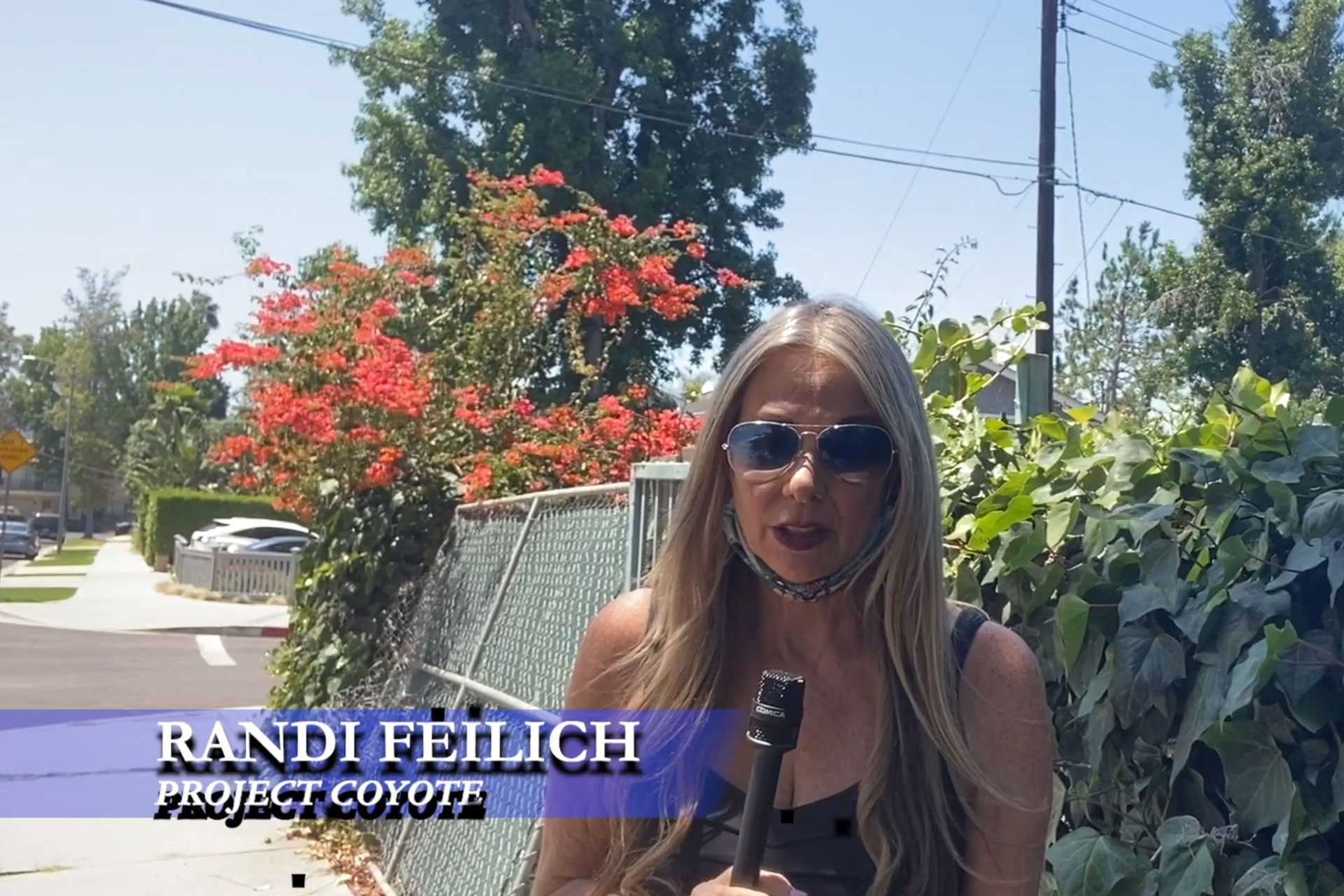
COYOTE FRIENDLY COMMUNITIES™ and REFORMING PREDATOR MANAGEMENT
Project Coyote Southern California Representative Randi Feilich played a major role in the investigation into illegal trapping in Valley Village, CA. The dogged efforts of Randi and PETA representatives resulted in the Los Angeles District Attorney filing a felony cruelty-to-animals charge and a misdemeanor charge for use of an illegal trap against Richard Wallem, who allegedly set a rusty steel-jaw trap in Valley Village in July 2020. This trap captured a coyote pup, who struggled in extreme heat for over 24 hours before being euthanized as a result of injuries caused by the trap.
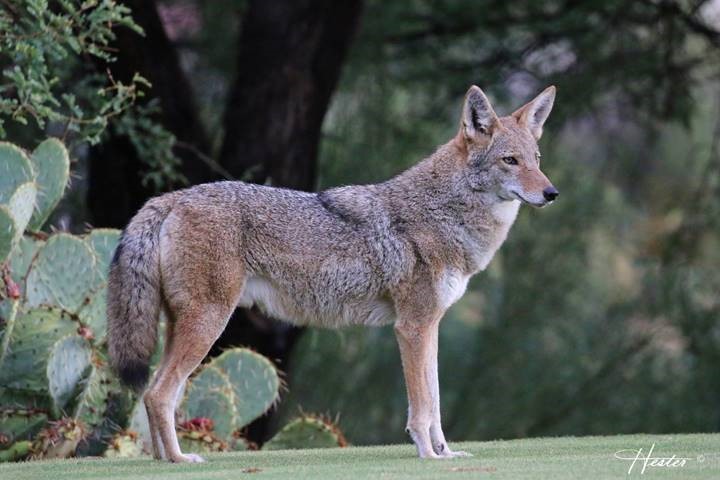
REFORMING PREDATOR MANAGEMENT
Project Coyote Advisory Board member and criminal defense attorney, Don Lipmanson is heading our legal efforts in collaboration with Mendocino Nonlethal Wildlife Alliance (MNWA) to urge Mendocino County, CA to permanently end their contract with USDA Wildlife Services and shift from lethal to nonlethal predator control. (Read more here.) After the County voted in July to approve a five-year lethal Integrated Wildlife Damage Management Program with Wildlife Services and to certify an Environmental Impact Report for the operation of the program, Project Coyote and MNWA filed suit against the County challenging the decision.
Following efforts by Project Coyote and coalition partners, Humboldt County has entered into a new contract with USDA Wildlife Services that reins in the rogue wildlife-killing agency, requires them to prioritize non-lethal mitigation measures in urban and suburban areas, and prohibits the killing of beavers.
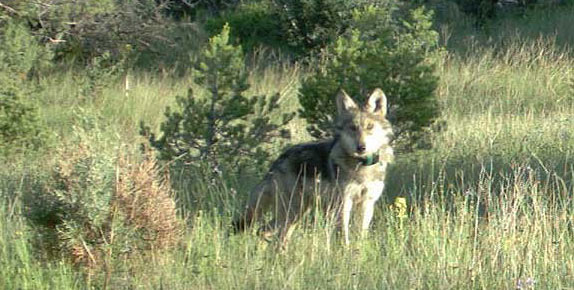
REFORMING PREDATOR MANAGEMENT and SCIENCE, CONSERVATION & STEWARDSHIP
Science Advisory Board Member Dave Parsons has long supported efforts to save the endangered Mexican gray wolf. As a former wildlife biologist with the U.S. Fish and Wildlife Service (FWS), Dave oversaw that agency’s efforts in the 1990s to reintroduce the Mexican gray wolf to portions of its former range in the Southwest, and he continues to advocate for the recovery of this iconic subspecies. This year, Dave coordinated our team’s submission of comments to FWS during the public scoping period addressing the agency’s court-ordered revision regarding lobo management.
In addition to gray wolves, we pressed for federal protection of other endangered wild carnivores including grizzly bears and Canada lynx.
In response to a lawsuit filed in 2019 by Project Coyote and partner advocacy groups, a federal court in San Francisco ruled in April that USDA Wildlife Services must restrict its use of bird-killing poisons in Northern California, stop setting strangulation snares and other traps in places like the Sacramento National Wildlife Refuge Complex, and analyze the environmental impacts of its killing of coyotes, bobcats, mountain lions, and other wildlife in California’s 10-county “Sacramento District.”
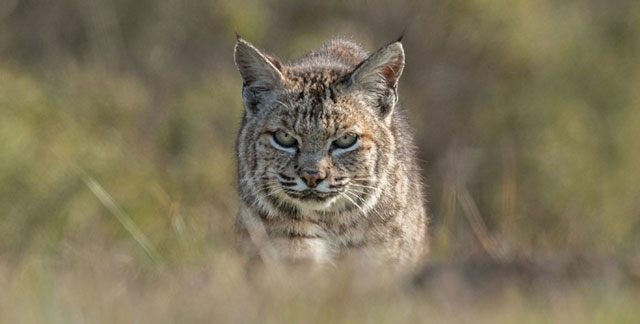
RANCHING WITH WILDLIFE and SCIENCE, CONSERVATION & STEWARDSHIP
Project Coyote submitted extensive comments to the National Park Service’s Draft Environmental Impact Statement (DEIS) on the General Management Plan for Point Reyes National Seashore (PRNS) and Golden Gate National Recreation Area in California. The DEIS addressed issues related to the tension between private ranching concerns and native wildlife (primarily tule elk) in PRNS. Project Coyote opposed the expansion of ranching in the park, arguing that such a proposal will only increase conflicts with livestock that threaten the park’s wildlife. The final Environmental Impact Statement released by the Park Service in September 2020 tilts in favor of continued commercial livestock and crop production in the Park. Project Coyote and allies continue to apply pressure on relevant agencies and policymakers to try to stop this ill-conceived plan. Read Project Coyote Wildlife Educator Sarah Killingsworth’s thoughts here, and Project Coyote Science Advisory Board member George Wuerthner’s comments here.
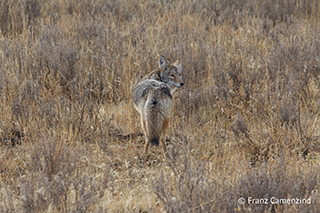
SCIENCE, CONSERVATION & STEWARDSHIP
Science Advisory Board members Dr. Adrian Treves and Dr. Francisco Santiago-Ávila recently published Liberalizing the killing of endangered wolves was associated with more disappearances of collared individuals in Wisconsin, USA, and Dr. Treves also co-authored Wolf Delisting Challenges Demonstrate Need for an Improved Framework for Conserving Intraspecific Variation under the Endangered Species Act.
National Carnivore Conservation Manager Dr. Michelle Lute recently published Conservation professionals’ views on governing for coexistence with large carnivores and Modeling urban socio-ecological drivers of human-carnivore coexistence.
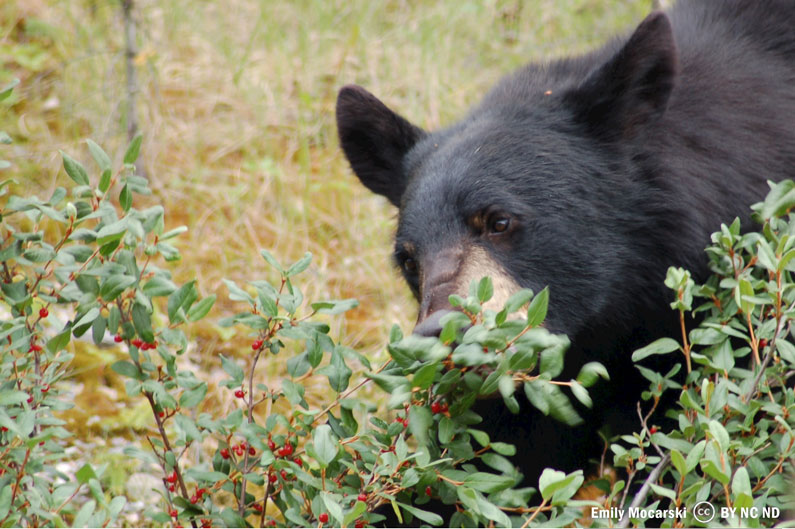
EVENTS
Project Coyote continued to engage the public and disseminate our message of compassionate coexistence with virtual “booths” at numerous events that moved online this year. Among these were the 5th Annual P-22 Day & International Urban Wildlife Festival, honoring the famous mountain lion who has managed to survive in a challenging urban environment; and the Wildlife Conservation Network Fall Expo, one of the world’s preeminent events for conservationists.
Project Coyote Executive Director Camilla Fox joined Jill Fritz of HSUS in advocating against wildlife killing contests at the Taking Action for Animals Online conference and at Sedona Wolf Week.
Project Coyote, in collaboration with The Rewilding Institute, has initiated an informative and engaging series of webinars. To date, topics have covered Mexican Gray Wolf Recovery; A Critical Evaluation of Legal and Illegal Killing of Native Predators; An Inside Look at the Intriguing, Elusive Bobcat; and Fear, Wild Things, and Coexisting with Predators. Check out our Webinars and Events pages for news about upcoming presentations.

